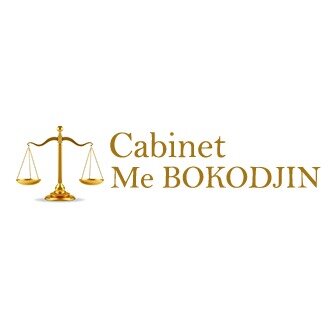Best Natural Resources Lawyers in Togo
Share your needs with us, get contacted by law firms.
Free. Takes 2 min.
Or refine your search by selecting a city:
List of the best lawyers in Togo
About Natural Resources Law in Togo
Togo, a West African nation, is endowed with a diverse array of natural resources, including phosphates, limestone, marble, and arable land. The country's economy heavily relies on agriculture, mining, and subsistence farming. Natural resources law in Togo encompasses regulations that oversee the exploration, exploitation, and management of these resources to ensure sustainable development and environmental conservation. In recent years, the government has been focusing on attracting foreign investment to further develop this sector while ensuring benefits for local communities and safeguarding environmental standards.
Why You May Need a Lawyer
There are several scenarios where professional legal assistance might be crucial in the realm of natural resources in Togo:
- Land Disputes: Conflicts may arise over land ownership and usage, especially in regions rich in resources.
- Environmental Compliance: Companies engaging in resource exploitation must adhere to environmental regulations, requiring legal guidance to ensure compliance.
- Contract Negotiations: Businesses may need help drafting and negotiating contracts for resource exploration or extraction.
- Regulatory Compliance: Navigating through complex regulatory frameworks for starting and operating businesses in the natural resources sector can necessitate legal expertise.
- Dispute Resolution: Resolving disputes between parties involved in resource extraction and use, whether through litigation or arbitration, can benefit from legal counsel.
Local Laws Overview
Togo's legal framework governing natural resources includes several key pieces of legislation and regulations:
- Mining Code: This sets out the rules for mining activities, including prospecting, exploration, and extraction of mineral resources.
- Environmental Code: Provides regulations on environmental protection and sustainable resource management.
- Land Tenure Laws: These laws define land ownership rights and usage, important for both agrarian and mining activities.
- Investment Code: Aims to promote foreign investment while balancing the interests of local communities and sustainable development.
- Forestry and Wildlife Laws: Regulate the conservation and sustainable use of forestry resources and biodiversity.
Frequently Asked Questions
What are the key natural resources available in Togo?
Togo is rich in phosphates, limestone, marble, and suitable agricultural land, amongst other resources.
How does Togo regulate the mining industry?
The mining industry in Togo is regulated by a comprehensive Mining Code that outlines procedures for the exploration and extraction of minerals while ensuring environmental protection.
What legal protections are in place for landowners in Togo?
Land Tenure Laws in Togo establish the legal framework for land ownership, providing protections against unlawful expropriation and ensuring the rights of landowners.
Are there environmental laws that businesses must comply with?
Yes, the Environmental Code in Togo mandates businesses to adhere to regulations aimed at protecting the environment and promoting sustainable resource use.
Can foreign entities invest in Togo's natural resources sector?
Yes, under the Investment Code, foreign entities can invest in Togo's natural resources sector, subject to specific regulations and guidelines.
What licenses are required for mining operations?
Mining operations require various licenses, including exploration and mining permits, which are governed by Togo's Mining Code.
How are land disputes resolved in Togo?
Land disputes are typically resolved through negotiation, arbitration, or the court system, often with the assistance of legal professionals.
What role does the government play in the natural resources sector?
The government regulates the sector through legislation, policies, and by granting necessary permits and licenses for resource exploitation.
Is community consultation required for resource projects?
Yes, projects often require consultation with local communities to address concerns and ensure community benefits, as part of regulatory compliance.
How can I find a qualified lawyer in Togo?
To find a qualified lawyer specializing in natural resources, you can consult local bar associations, legal directories, or seek recommendations from relevant industry bodies.
Additional Resources
For further assistance, consider reaching out to these organizations and governmental bodies:
- The Ministry of Mines and Energy: Oversees mining regulations and initiatives.
- The Ministry of Environment and Forest Resources: Focuses on environmental protection and resource management.
- Togo Bar Association: A resource for locating licensed legal practitioners.
- Chamber of Commerce and Industry of Togo: Provides support for businesses operating in Togo.
Next Steps
If you need legal assistance in the natural resources sector, consider taking the following steps:
- Assess Your Needs: Understand the specific legal challenges or requirements you are facing.
- Research Local Lawyers: Look for lawyers or law firms with experience and expertise in natural resources law in Togo.
- Consult with Professionals: Arrange consultations to discuss your case and explore how they can assist you.
- Gather Documentation: Prepare relevant documents, contracts, and any pertinent information for your legal counsel.
- Follow Legal Advice: Adhere to the legal strategies and recommendations provided by your lawyer to effectively address your issues.
Lawzana helps you find the best lawyers and law firms in Togo through a curated and pre-screened list of qualified legal professionals. Our platform offers rankings and detailed profiles of attorneys and law firms, allowing you to compare based on practice areas, including Natural Resources, experience, and client feedback.
Each profile includes a description of the firm's areas of practice, client reviews, team members and partners, year of establishment, spoken languages, office locations, contact information, social media presence, and any published articles or resources. Most firms on our platform speak English and are experienced in both local and international legal matters.
Get a quote from top-rated law firms in Togo — quickly, securely, and without unnecessary hassle.
Disclaimer:
The information provided on this page is for general informational purposes only and does not constitute legal advice. While we strive to ensure the accuracy and relevance of the content, legal information may change over time, and interpretations of the law can vary. You should always consult with a qualified legal professional for advice specific to your situation.
We disclaim all liability for actions taken or not taken based on the content of this page. If you believe any information is incorrect or outdated, please contact us, and we will review and update it where appropriate.
Browse natural resources law firms by city in Togo
Refine your search by selecting a city.











